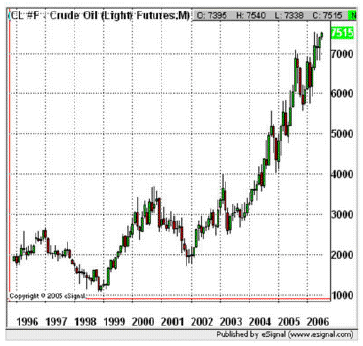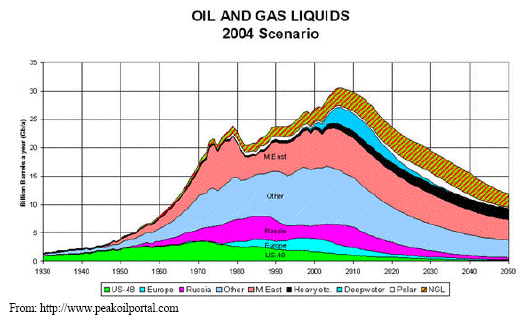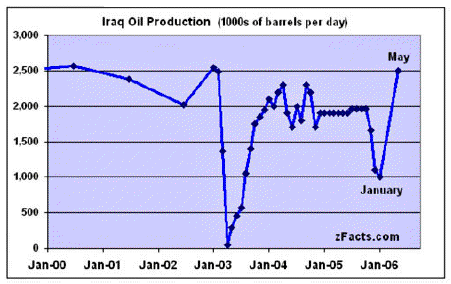Prime Minister John Howard has called for an all-out debate on energy in Australia. But what he doesn’t want is an all-out debate on petrol prices - because that’s a debate that he can’t win.
So far, for reasons best known to themselves, the Labor Party has given Howard an easy run on petrol prices. Perhaps they assume rising fuel prices reflect international pressures over which the Howard Government has little control.
But how true is that assumption? It’s true that oil prices are largely set at an international level. The rising cost of petrol at the pump in Australia reflects the rise in the price of crude oil on NYMEX, where the futures contract for “light sweet crude” has gone up from about $20 a barrel at the end of 2001 to just over $75 a barrel today.
Advertisement

NYMEX light sweet crude futures index
And who is to blame for these rising world oil prices?
Not us, cries the White House. The Bush team prefers to blame rising demand for oil by the developing powerhouses, China and India, which are depicted as pressuring supplies and driving up prices.
The problem with this assertion, as Nobel Laureate Joseph Stiglitz argues in a recent study on the costs of the Iraq war, is that the demand from China and India has been rising steadily for years without any corresponding impact on oil prices, and certainly precedes the recent tripling in the price of oil.
Is it due to the peaking of oil supplies? There is no doubt that the arrival of a peak in world oil supplies will have an upward effect on world oil prices in the medium-term. Existing oil fields are reaching their peak, while known and future sources of oil will be far more costly to access, and discovery of new fields is fast declining - as dealt with admirably by the ABC’s Four Corners program in July.

Advertisement
Important as it is for debates over future energy supplies, “peak oil” cannot be blamed for the recent tripling in prices. More likely, the peaking of oil supplies will have an effect on prices in conjunction with sudden crises like Hurricane Katrina, which destroyed 109 oil platforms in the Gulf of Texas (according to US Government official figures).
So what is driving high oil prices internationally? Among the various contenders, one factor is inescapable: the Iraq War. Before the war, Iraq was pumping around 2.5 million barrels of oil per day. Since the war started in 2001, its record is as shown in the chart below.

Discuss in our Forums
See what other readers are saying about this article!
Click here to read & post comments.
34 posts so far.